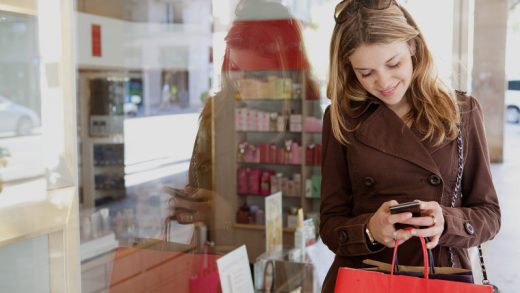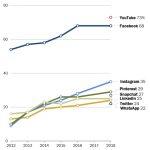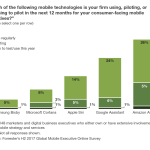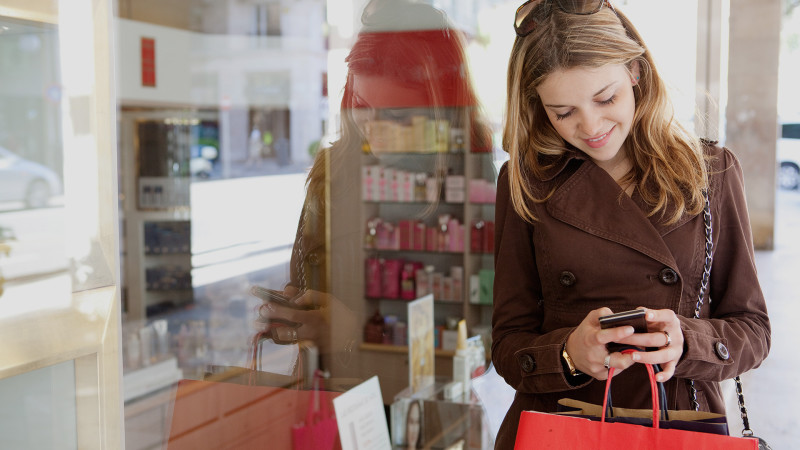Study: 83 percent use smartphones in stores, Facebook the most widely used app
Euclid survey reveals consumer wish list for in-store digital experiences.

More than 92 percent of all retail spending occurs in physical stores. Yet online shopping, and Amazon in particular, are clearly disrupting traditional retail.
The debate over what traditional retailers can and should do to respond has been going on for years, though it’s been intensifying recently. Some believe smartphones and other digital tools can improve the in-store experience. Others argue technology will have a marginal impact at best.
A new study from Euclid Analytics contains some valuable input into this discussion. The study, which involved 1,500 US smartphone owners, sought to understand their shopping preferences and behaviors with an eye toward holiday 2016.

The survey found that more than 90 percent of smartphone owners visit traditional stores at least once a week and that 83 percent used smartphones as part of in-store shopping. By comparison, only half (49 percent) of survey respondents shopped online once a week or more.
The top reasons people gave for in-store shopping were:
- I like to see, hold, and try on products before I buy — 67 percent.
- I enjoy browsing stores — 51 percent.
- I don’t have to wait for products to be delivered — 50 percent.
However, there were also things these consumers didn’t like about the physical stores experience. Among them were:
- I have to wait in line — 45 percent.
- I have to physically go to the store — 33 percent.
- I don’t have as many selection choices as when I shop online — 26 percent.
For the 83 percent who used smartphones in stores, the following were the top activities they performed (in order):
- Compare prices
- General use (phone calls, texting, email, apps, etc)
- Look up email promotions
- Look at your to-do list
- Take pictures of products to remember it for later
- Read online product reviews
- Open mobile application for the specific retailer

Asked further about which apps they used in store, the survey discovered that Facebook was the most commonly used app in stores after messaging. Google and Amazon followed in that order. The report speculates that Google and Amazon were being used to compare prices in stores — the top in-store smartphone use case.
These respondents identified a wish list of capabilities and content that they wanted to be able to access in store on their smartphones:
- Access the store’s best deals/sales for maximum savings
- Allow me to quickly access my loyalty program information in stores
- Display inventory count for all products
- Provide me with a map of the outlet
- A more personalized experience based on my shopping habits and preferences
- Allow me to request the attention of a store associate
They also wanted to be able to access coupons, product information, inventory availability and personalized recommendations on their smartphones.
The above findings, together with the information about what shoppers don’t like about the store experience (e.g., waiting in line), contain a blueprint for using smartphones and apps to improve and invigorate the traditional retail experience.
Marketing Land – Internet Marketing News, Strategies & Tips
(27)















